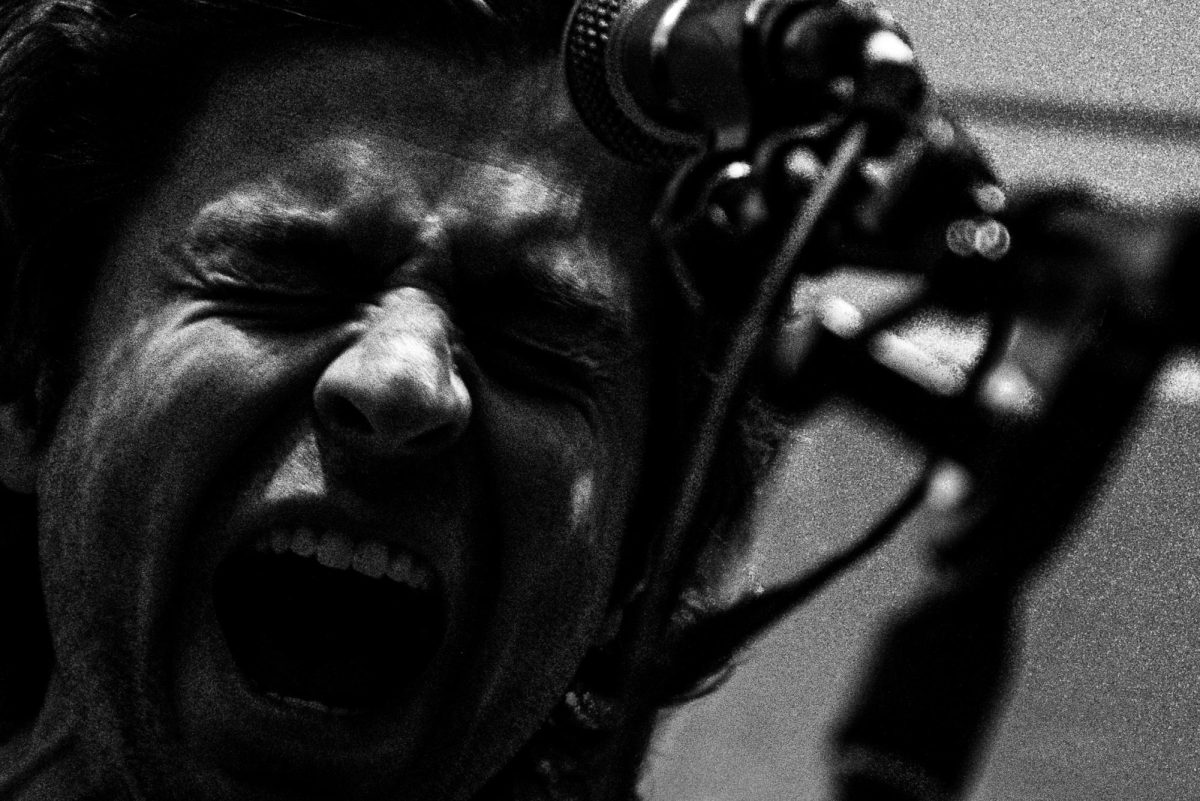Feedback: Reliving and Revival
April 1, 2013
 The Decemberists, The Mars Volta and Mastodon constitute just the new bands falling in love with the concept album; the old progressive rock movement of the ’70s that produced more concept albums than standard ones. Yet musicians don’t seem to have such a time with deep remakes. I mean a full appropriation of an old story into a very new album, not just a remastering of older works, a few covers or an homage to an inspiring band. There are not that many concept albums that use an old story as their format.
The Decemberists, The Mars Volta and Mastodon constitute just the new bands falling in love with the concept album; the old progressive rock movement of the ’70s that produced more concept albums than standard ones. Yet musicians don’t seem to have such a time with deep remakes. I mean a full appropriation of an old story into a very new album, not just a remastering of older works, a few covers or an homage to an inspiring band. There are not that many concept albums that use an old story as their format.
It is no easy feat to take an old idea and make it your own; It is hard enough to create a good cover. But taking a classic and expanding it, rewriting it or reshaping it for a whole new style of media — that’s a true task. Two bands went about the interesting process of taking a whole story told not wholly through music and trying to make it their own. They took two very different routes.
That Handsome Devil did not build a reputation as a particularly happy or optimistic band. That Handsome Devil’s music thrives off of a cynicism so acrid and rude that it feels melodramatic. Their lead singer, Godforbid (his actual name), rattles loose a number of quips in a deep voice uniquely his own. On A City Dressed in Dynamite, songs like “Viva Discordia” have him rattling off as much critically irate observation as quick as can be. Then he slows down and lets his critique roll out smooth in “Pills For Everything.”
Yet for whatever reason Godforbid & Co. love taking classic children’s stories and twisting them tight. The band first tried their hand with The Grinch, just slightly malforming one song as a cover. Now they’ve reached out to do something a bit bigger by giving their own sour spin on The Jungle Book, releasing an EP of the same name.
They kept the lyrics of the songs, but they punctuated each track with bits of narration cataloguing the urban adventures of a misguided man. The story shapes up similarly to the work it adapts, only with a deep tonal shift. The protagonist’s exploration is not as innocent and upbeat as it once was. The introduction focuses the shifted story on a man pink slipped into personal oblivion and seeking something new. He meets old acquaintances like they were new in the first track “Friends,” which bounces about like the theme for a ’50s dance hall. The record flows well as a story, using the narrative interludes to tie each bit together well, and the bouncy “Friends” switches easily to the smooth but sorrowful “Trust” as it forges a melody marked with solitary strings and a sparse sound. The whole record uses the original lyrics so well with completely redesigned instrumentations that it transforms the childish story of self-discovery into a very adult interaction with a harsh reality.
Everything really culminates at “FireÛ, the remake of The Jungle Book’s jazziest jam, “I Wanna Be Like You (The Monkey Song)”. Coming right off the transition with deep and blaring noise, the song slides into an uptempo beat. That beat switches in and out of a mesh of rumbling, deep noise and glitzy, high-pitched sounds that shoots straight chaos across the ossicles.
That Handsome Devil’s reinterpretation of The Jungle Book manages to take directly from the original source, but still distance itself from it greatly, melting the old childhood tale into some new mutation still bearing the old genome of its familiar phenotype.
Murder By Death’s album Red of Tooth and Claw contrasts That Handsome Devil’s mode of literal adaptation. Murder By Death’s deep vocals, romanticized lyrics and cellist fuse a sense of the American western classics into every note. They do more justice to that old style of western than any other rock band, but they have a love for much older classics. Red of Tooth and Claw takes Homer’s The Odyssey and fuses it with the wilderness of the American West. They take the tune of the old tale and twist it into something all their own. They recreate the story to center this time around a dishonorable Odysseus and putting him in the environment they characterize so well with each of their songs. You can hear in the intensity of “Coming Home” a distinct interpretation of Odysseus’s voyage back home. It does not contain his entire voyage, by any means, just his intense personal desire to get back to his abode.
That Handsome Devil and Murder By Death both took two very interesting approaches to an experiment not too often conducted. They grabbed a classic concept and remade it in their image with remarkable success. Even more remarkably, they both accomplished the same end using separate methods that fit the personalities lodged in their songs. There is something in that effort to breathe life into the aged artist’s concept that is worth lauding. There is something worth cheering for when it actually works out.














